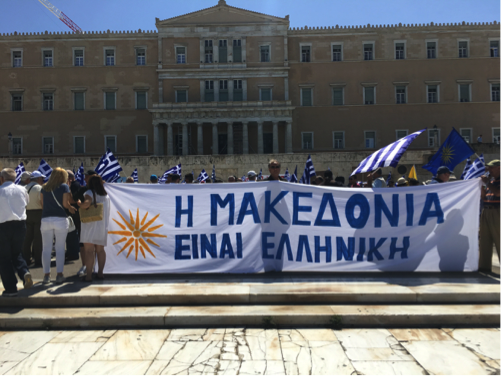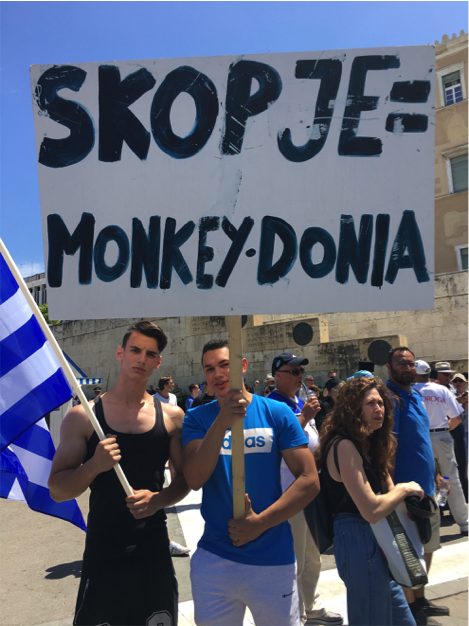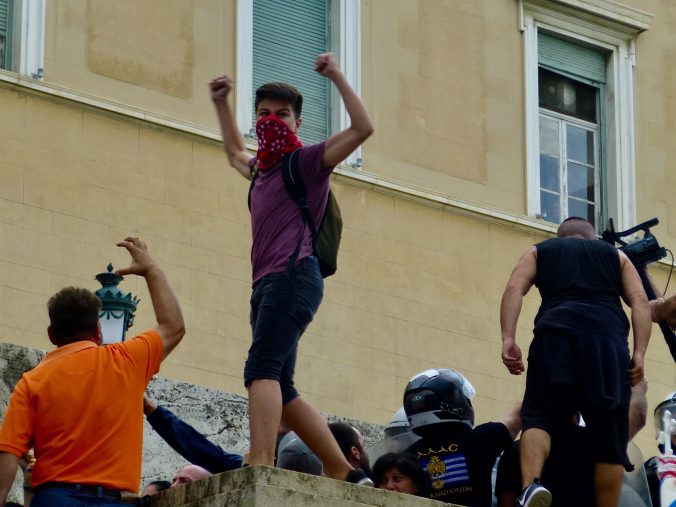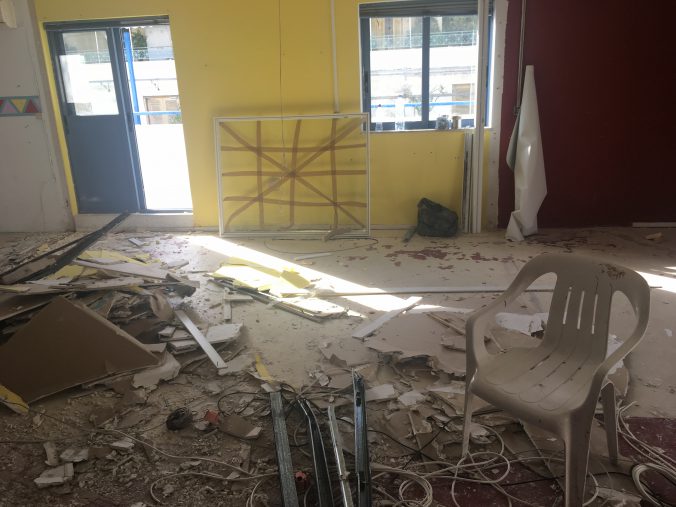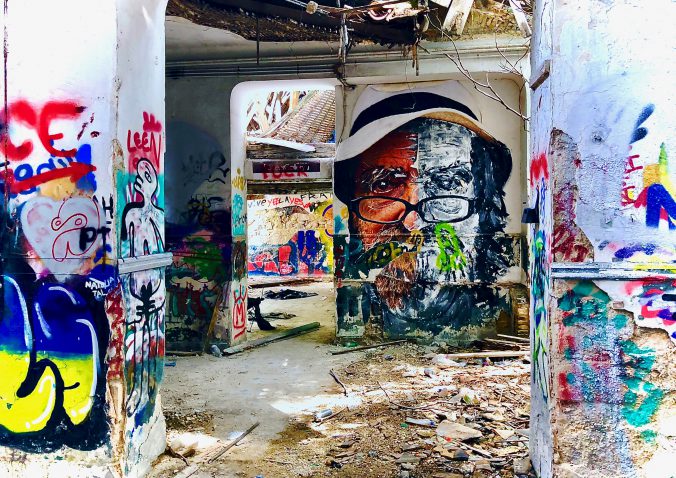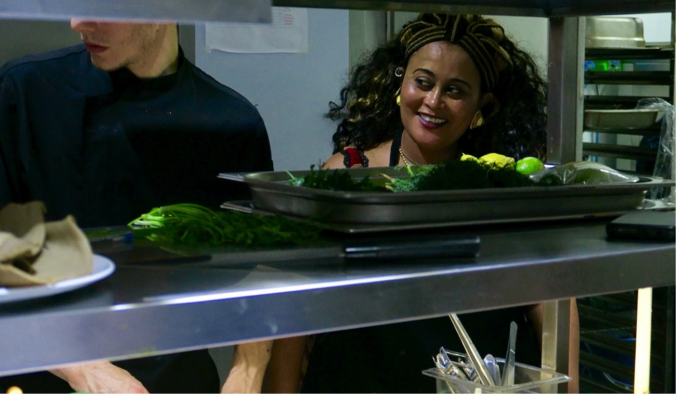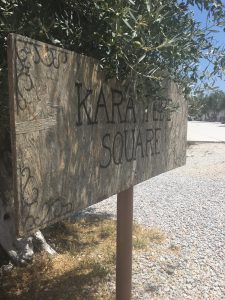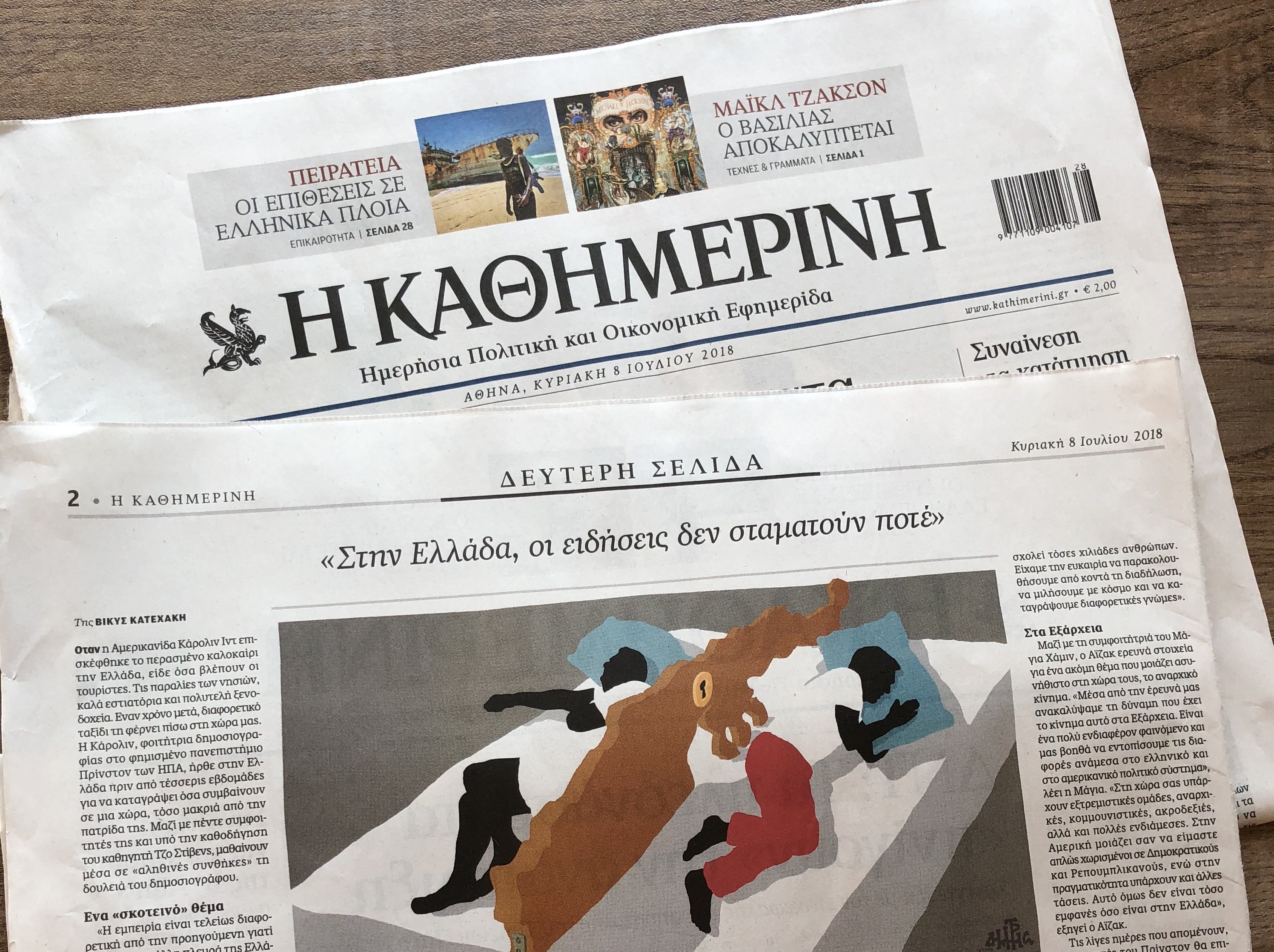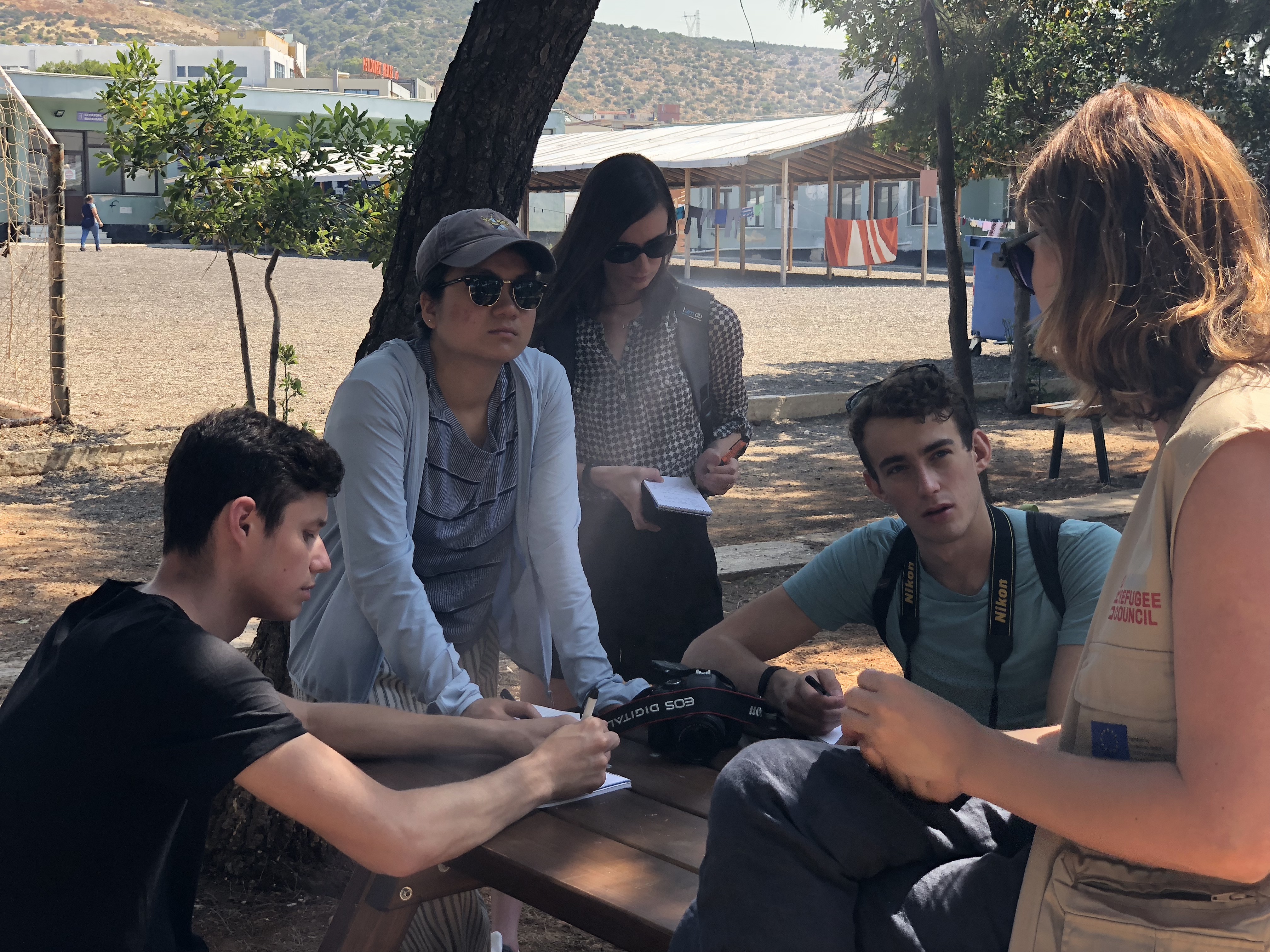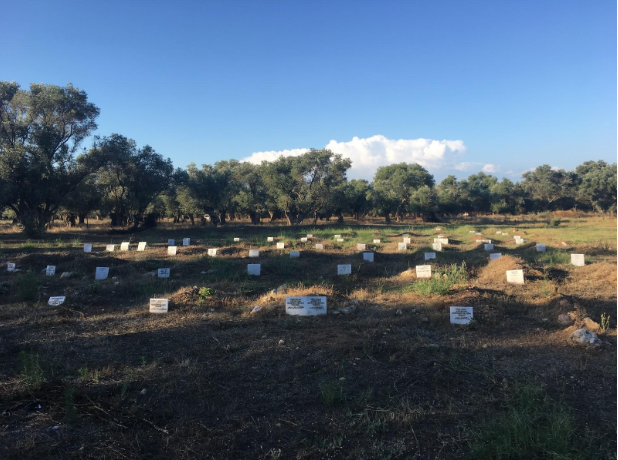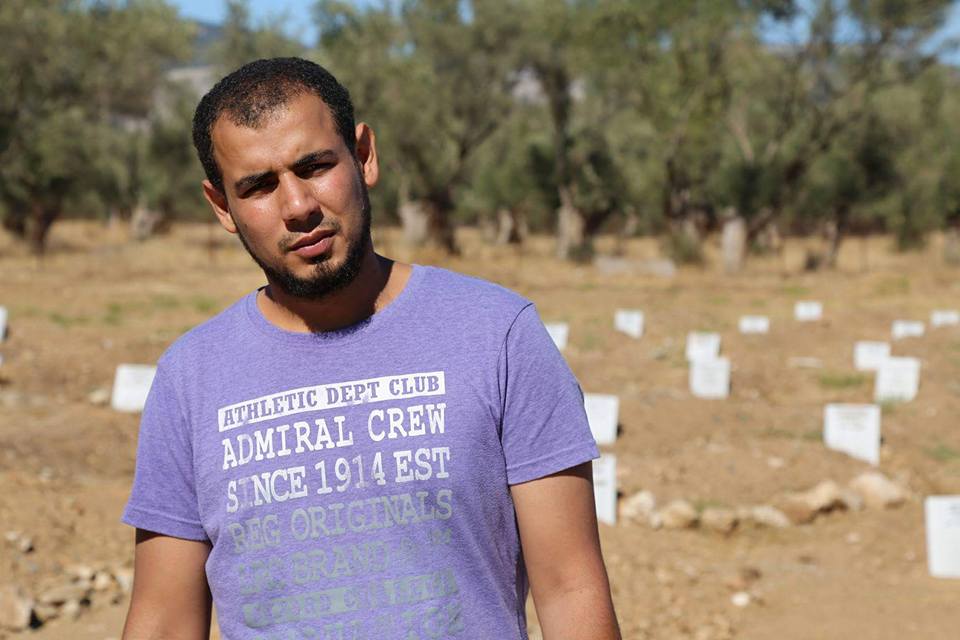A hotelier, two migrants, a grave digger, a camp director, a protestor and an elephant – perspectives on the refugee crisis in Greece
By Isaac Wolfe
LESBOS, Greece. July 11, 2018
I.The hotelier
It was a bright April day in Lesbos when the first boat landed on the beach at the Aphrodite Hotel. On that day, Aphrodite Vati Mariola, for whom the hotel is named, was very busy. She was making sure that the season opening for the family-run hotel would be smooth and enjoyable for her first guests of 2015. She and her family had led the staff in preparing the 52 rooms, preening the shimmering outdoor swimming pool and tidying the pebble beach that opened out into a private cove.
The season was almost fully booked, set to be one of the most profitable in the hotel’s history. Then, Mariola heard sounds coming from the beach.
Perched on the edge of Aphrodite’s shore sat a dinghy carrying a family of fifteen people. Eleven adults and four children were huddled together on the boat, the youngest passenger only a year old. “I had no idea what a refugee was as the time,” Maroila later said. All she saw was a family in need. But these people were indeed refugees, a family of Syrians who had escaped through Turkey and smuggled themselves across the Aegean gap to Greece. As the fifteen shell- shocked passengers leapt from boat to land, touching European soil for the first time, Aphrodite Vati Mariola was there to greet them.
“They were traumatized and scared to death,” Mariola said of the first group of refugees she helped. “They didn’t know us, didn’t know water, didn’t know where they are.” One of the passengers was an older man and as Mariola and her family attempted to help him off the boat they realized he was paralyzed from the waist down. Mariola’s father quickly opened two hotel rooms for the group and provided them with food while Mariola ran home to find a change of clothing for the wet and shivering passengers. She took items from her own son’s and daughter’s wardrobes to cloth the children who washed onto her shore.
As the Syrian family recuperated and the hotel owners began to strategize their next steps, Mariola watched the seven- and eleven-year-old Syrians dressed in her own children’s clothing. “I realized those could be my children,” she recalled.
This was only the beginning.
Continue reading

